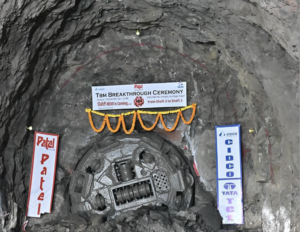Greater Noida (Business Desk): RHI Magnesita, the global leader in refractories, was showcased at the UN Climate Conference in Baku (COP29) for its CCUpScale project as part of the Net-Zero Industries Award 2024. The company has now officially received the Outstanding Projects Award in Austria.
The groundbreaking CCUpScale project, a collaboration with the cleantech start-up MCi Carbon, highlights RHI Magnesita’s strong commitment to decarbonizing so-called “hard-to-abate” industries. With a total of 70 submissions from 26 countries, the Net-Zero Industries Award 2024 served as an international platform for pioneering industrial decarbonization projects. Through CCUpScale, RHI Magnesita is setting new standards in Carbon Capture and Utilization (CCU) by transforming CO₂ emissions into valuable mineral products using innovative technologies. These approaches pave the way for transitioning the refractory industry—one of the most emission-intensive sectors—and other CO₂-heavy industries into a more climate-neutral and sustainable future.
“This award is further proof that we are on the right track. It confirms that our innovations are driving sustainability in the refractory industry—and beyond,” says Rajah Jayendran, Chief Technology Officer. “We are proud of our team and their active role in contributing to a climate-neutral future with CCU.”
Constantin Beelitz, Regional President Europe, CIS & Türkiye, adds: “There is great excitement about this recognition at our raw materials plant in Hochfilzen. With our CCU technology, we will have decarbonized the site by 90% by the early 2030s. I am honored to accept this award on behalf of all my colleagues in Hochfilzen.”
“Our success demonstrates the importance of innovation and international collaboration in tackling the challenges of emissions in “hard-to-abate” industries,” says Martin Pischler, Head of Sustainability Technology, who received the award in Linz.
The Net-Zero Industries Award is presented by Mission Innovation Net-Zero Industries, a global alliance supported by countries such as Austria, Australia, Canada, China, Finland, Germany, South Korea, the UK, the USA, and the EU. Its goal is to develop and implement cost-efficient and effective solutions for a climate-neutral industrial future.









